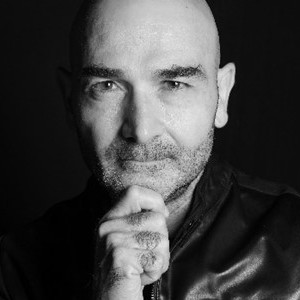Collection
Pathways to Sustainability: Perspectives on Just Transitions
- Submission status
- Open
- Open for submission from
- 15 April 2024
- Submission deadline
- 31 December 2024
A "just transition" refers to a socio-economic concept aimed at ensuring that the shift towards more sustainable and environmentally friendly practices, such as those related to resource extraction, doesn't leave certain communities or groups behind. This term is particularly relevant in areas where raw materials are extracted, as these industries often undergo significant changes due to shifts in market demand, technological advancements, or environmental regulations. In the context of raw material extraction, a just transition entails several key principles:
1. Fairness and Equity: It emphasizes that the burdens and benefits of transitioning away from resource extraction should be distributed equitably among all stakeholders, including workers, communities, and the environment. This means that vulnerable populations, such as workers in extractive industries, should not bear the brunt of economic hardship resulting from the transition.
2. Worker Rights and Job Security: A just transition acknowledges the importance of protecting the livelihoods of workers in industries affected by the transition. This may involve providing support for retraining programs, job placement services, or financial assistance to facilitate the transition to new, sustainable employment opportunities.
3. Community Well-being: It prioritizes the well-being of communities reliant on resource extraction by ensuring that they have access to essential services, infrastructure, and economic opportunities even as the local economy shifts away from extractive industries. This may involve investing in alternative forms of economic development, such as renewable energy projects or eco-tourism, to diversify the local economy.
4. Environmental Sustainability: While addressing the needs of workers and communities, a just transition also underscores the importance of environmental sustainability. It seeks to minimize the environmental impacts associated with resource extraction and promotes the adoption of more sustainable practices that protect ecosystems and natural resources for future generations.
5. Democratic Decision-Making: Lastly, a just transition emphasizes the importance of inclusive and participatory decision-making processes, where all stakeholders have a voice in shaping the transition strategy. This ensures that the concerns and perspectives of affected communities, workers, and other stakeholders are taken into account in policy development and implementation.
This Topical Collection will deal with a sustainable and just environmental transition, seeking to reconcile the imperative of transition towards a more sustainable economy with the need to protect the rights and well-being of those affected by the shift, particularly in communities where raw materials are extracted. By addressing social, economic, and environmental concerns in an integrated manner, it will support papers aiming to build a more resilient and equitable society for all.
Keywords: just transition; sustainability; social sustainability; cultural survival; Indigenous Peoples; cosmovision; pollution; critical raw materials.
This Collection supports and amplifies research related to SDG 1, SDG 4, SDG 5, SDG 6, SDG 7, SDG 8, SDG 10, SDG 12, SDG 13, SDG 16, SDG 17.
Editors
-
Elza Bontempi
Dr. Elza Bontempi, Full Professor, University of Brescia, Italy She is a Full Professor in Fundamentals of Chemistry for the Technologies. In recent years, her scientific activity has focused on the recovery of critical raw materials in the field of circular economy. She won several prizes and was listed among the 2% of the top world researchers by the Stanford ranking. She is included in the Top Italian Scientists list in the field of natural and environmental sciences.
-
Avelino Núñez-Delgado
Dr. Avelino Núñez-Delgado, Professor, University Santiago de Compostela, Spain He is Professor at the Department of Soil Science and Agricultural Chemistry, Engineering Polytechnic School, Campus Terra (Lugo), University of Santiago de Compostela (USC), Spain, since 1996. He was listed among the 2% of the top world researchers by the Stanford ranking and among world top researchers by Researchgate, Expertscape, Web of Sciences, Scopus, and other world research classifications. Currently, he is collaborating with a variety of research teams from various countries around the world.
-
Mario Coccia
Dr. Mario Coccia, Research Director, National Research Council of Italy, Italy He is a social scientist at the Arizona State University (USA) as visiting scholar. He has developed scientific research at the Georgia Institute of Technology, Yale University, UNU-Maastricht Economic and Social Research Institute on Innovation and Technology (United Nations University-MERIT), RAND Corporation (Washington D.C.), University of Maryland (College Park), Bureau d’Économie Théorique et Appliquée (Strasbourg, France), Munk School of Global Affairs (University of Toronto), and Institute for Science and Technology Studies (University of Bielefeld).




